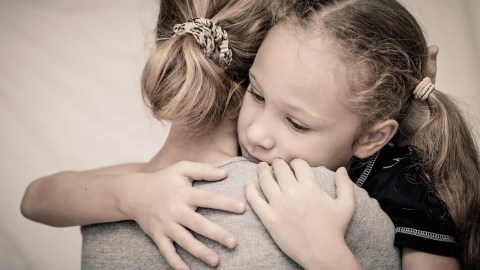Study: Improve Personal Wellness Through Forgiveness

Forgiveness is a difficult thing. But not letting go, and keeping all that resentment and blame maybe causing more harm than good. Tom Jacobs of the Pacific Standard writes on a recent study that gives some evidence to the physical and mental benefits of forgiveness.
The study was led by Xue Zheng from Erasmus University’s Rotterdam School of Management. Her work has been published in the journal Social Psychological and Personality Science, in which the team describes two studies that contributed to their findings.
“Our research shows that forgivers perceive a less daunting world, and perform better on challenging physical tasks.”
The first study consisted of 46 students that were split into two groups. One was asked to write about “a time when they were seriously offended by another person, and ultimately forgave them.” The other was asked to write about a similar incident, but one where they still held negative feelings toward that person.
After writing, the students were asked to stand near the base of a hill at a predetermined point and estimate how steep it was. Those who had written about forgiveness perceived the hill to be less steeper than those who wrote about negative feelings.
The second study took 160 students and broke them into three groups. One-third wrote about a time when someone wronged them and they forgave them; one-third wrote about a similar time, but did not forgive the offending party; and the final third wrote about a “recent interpersonal interaction” that did not involve forgiving someone.
Participants were then asked to jump five times without bending their knees. Researchers recorded how high each participant was able to jump. The researchers controlled for each participants’ physical ability, and after which found that those who had written about forgiveness jumped higher than those who did not. It’s rather poetic—those who failed to forgive were, quite literally, weighed down.
Zheng and her team, however, couldn’t determine the mechanical cause of this discrepancy. They do suggest:
“Victims who are unable to reconcile with their offenders often feel a sense of powerlessness.”
Perhaps it’s manifested in this physical and cognitive form where participants begin to perceive the world as harsher and tougher on them. This form of stewing about past wrongs may take up space and clunk up our cognitive functions if we’re ruminating about things that hurt us—energy that could be put to better use.
Read more at Pacific Standard
Photo Credit: Shutterstock





